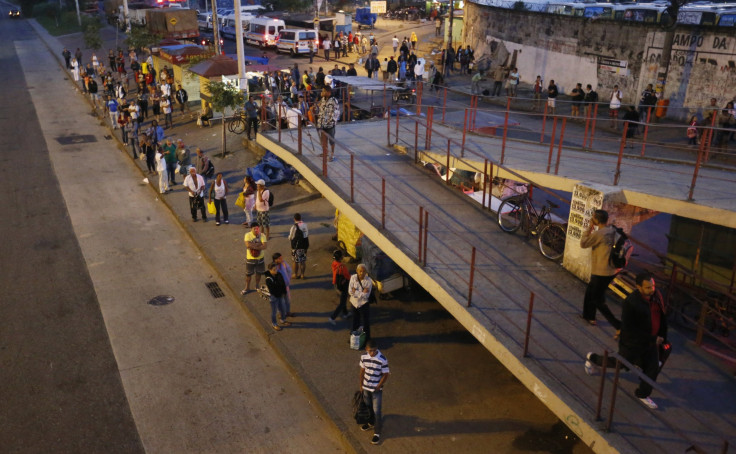
The transport department of the Municipality of Rio de Janeiro reported that about 2 million Cariocas (residents of Rio) were affected by the 48-hour strike that began that began at midnight, local time, on Tuesday. This is the second strike in less than a week. According to the Municipality of Rio, only 18 percent of the cars in the fleet actually circulated: transport is growing increasingly troubling for the second most populous city in the country, yet the city revealed it has no emergency plan for the World Cup.
Rio de Janeiro came to a standstill when bus drivers across the city went on strike. According to Rio Omnibus, the body representing the bus companies, there were attacks on about 75 buses. A week ago, the union denied all responsibility for the attacks and burnings of about 300 cars, actions which it attributed to "groups of provocateurs " who are not members of the guild. The Ministry of Justice deplored the total or partial destruction of the buses and held that the right to strike cannot be confused with vandalism.
However, the leadership of the Municipal Workers Union claimed they did not call the strike, which they allege was initiated by a dissident faction that does not have endorsement of the guild. Troops of the Militarized Police detained at least 5 people and redoubled security around garages of the transport companies. Local vans, which have more expensive tickets, provided "alternative " transportation. The Rio de Janeiro City Council admitted they have no emergency plan to ensure transport during the World Cup.
© 2025 Latin Times. All rights reserved. Do not reproduce without permission.




